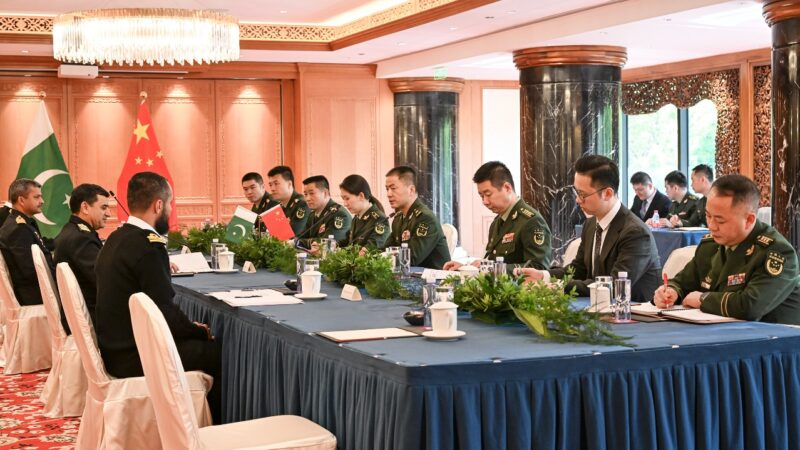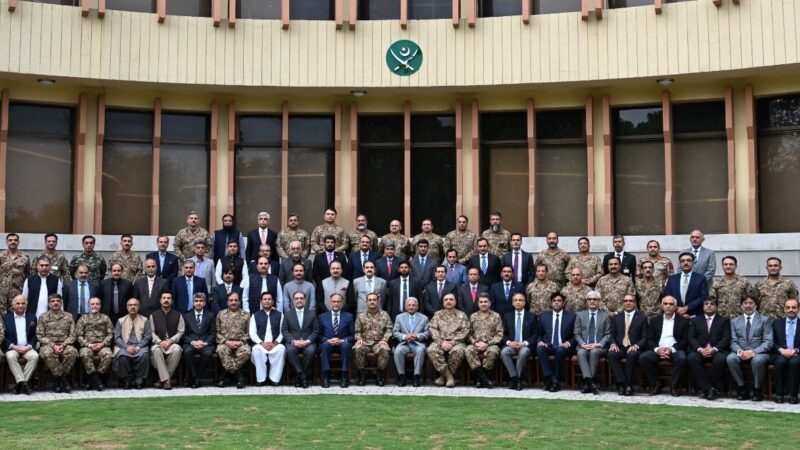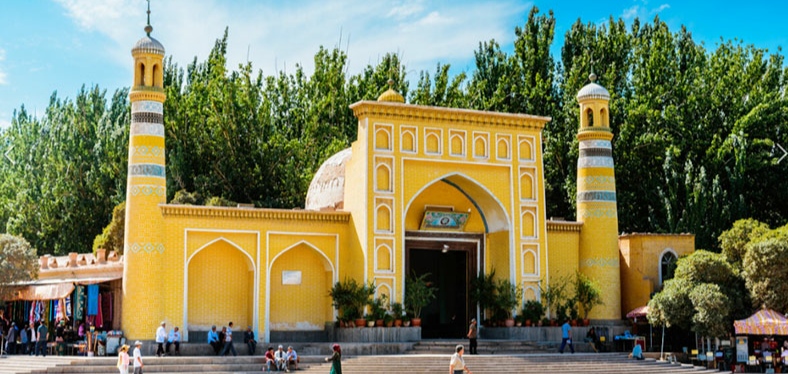Islamabad, Rumours of forced labour stand baseless, as the Uyghur Muslims are enjoying prosperity and ample provision of employment opportunities, professional training programs, abundant municipal facilities and mainstreaming.
During a journalist’s from Pakistan visit to “Jiashi Drinking Water Safety Engineering Project”, it was noticed two important points, which allowed him to understand how the local Uyghur Muslims live and work in peace and contentment under the guidance of the local leadership.
“Uyghur Muslims are among the main reasons for the socio-economic growth of the local Uyghur Muslims, who account for 98% of the total population of Kashgar, China’s Xinjiang Uyghur Autonomous Region,” he added.
Jiashi County is a county under the jurisdiction of Kashgar City, Xinjiang Uygur Autonomous Region, northwest China.
There was once a lack of drinking water here. Local residents have to drink unsafe water that poses a health hazard.
Eventually, with the financial support of the Chinese government, the safe drinking water project was established in 2019 and the drinking water problem was solved in 2020.
Talking to “Jiashi Drinking Water Safety Engineering Project” Director Han Huskies, he noted that it is an important step toward raising living standards and helping people escape poverty.
“After the drinking water safety project for urban and rural areas of Jiashi County was completed, all the drinking water pumped wells were made defunct, further saving the groundwater resources and protecting the ecology,” he added.
Answering the question, he said local Uyghur Muslims are also beneficiary of employments in the project. Most workers and officials are Uyghur Muslims, he added.
“Here comes also the role of China’ vocational education and training centers, Uyghur Muslims are becoming well-equipped with modern skills to fit for merits of jobs.”
“This is also the role of China’s vocational education and training centers. After receiving training there, Uyghur Muslims have been equipped with many modern skills to adapt to the workplace.”
Another milestone achievement, which has proven to be a game-changer in the lives of local Uyghur Muslims, is the operation of the Jiashi County Yuejia Plum Industrial Park.
Jiashi County Yuejia Plum Industrial Park is located in Yingbaili Township, 4.8 kilometers away from the county seat and 15 kilometers away from Kamai Expressway. It has convenient transportation and provides jobs for local Uyghur Muslims.
Contrary to the venomous rumors in the West about Uyghur forced labor, as a Pakistani reporter, I witnessed and met Uyghur Muslims in the Jiashi County Yuejia Plum Industrial Park who have been working according to their own will and who believe in working conditions, wages and professional training It has completely changed their lives.
In 2022, Gashi County cultivated plums (including apricots and plums) over a total area of 450,000 acres, with a fruiting area of 230,000 acres, making it the country’s largest production and marketing base for plums.
The Industrial Park represents a total investment of 380 million yuan and spans a total planning area of 364 acres, with a construction area of 100,000 square meters. It encompasses existing scientific and technological research and development areas, planting demonstration areas, cold chain warehousing and sorting areas, processing and production areas, and supporting services, among other functional areas. The aim is to establish a modern Plum Industrial Park integrating scientific research, teaching, training, processing, cold chain, warehousing, and logistics.
Upon completion, the industrial park is expected to have the capacity to grade 100,000 tonnes of fresh fruits, store 23,500 tonnes of fresh fruits, and provide seasonal employment for more than 5,000 people.
Uyghur Muslims enjoy religious freedom.
“I pray five times in Id Kah Mosque, main mosque of Kashgar city, Xinjiang. Not only me, but all Uyghur Muslims pray freely here. I have never experienced any religious ban on Muslim faith or Muslim rights,” said Mr Mehmat, a local Uyghur.
In a face-to-face interaction as he emerged from the Id kah Mosque Mosque, he categorically dismissed rumors of state-sponsored repression of Uyghur Muslims, saying talk of creepy surveillance and illegal detentions were completely false and misleading people.
Mehmat made a categoric remarks that Uyghurs are hundred percent free, safe and secure here.
He said that apart from daily life, marriage, and education, their religious activities, including prayers and Islamic norms, were not hindered by any means, and further replied, “We Uyghurs enjoy a good quality of life, and the government provides all basic civic amenities.
Our people are prospering, with ample employment, business and trade opportunities.”
During conversation with Id Kah Mosque Imam (prayer leader), he called the atrocities and rights violations against Uyghur Muslims as pack of lies. He said that as a prayer leader, he has been associated with the mosque for the past eight years without any intimidation or repression from negative media propaganda in the West.
He said life of lie is always short and truth is destined to prevail. “Hence, more foreign visitors will pour in Kashgar to observe personally facts with interacting general public, more such propaganda will be busted and those who are behind the game of misinformation will be exposed sooner or later,” he added.
Local Chinese official also told that city of Kashgar, also known as Kashi, is home of around nine thousand mosques. None of mosques were demolished but renovated, for the convenience of local Uyghur Muslims.
On query, he also labelled rumors regarding ban on having beard by men and wearing veil by women as absurd, saying government always respects religious sentiments of Uyghur Muslim community.
Id Kah Mosque is located on the west side of Etigar Squar in Kashi. It was built in the Ming Dynasty in 1442 and was expanded three times in 1573, 1787 and 1873. In 1962 it was announced as an autonomous region-level key cultural relic’s protection site by the people’s government of the autonomous region.
It was later announced as national-level key cultural relics protection by state council.
This fully demonstrates that China implements the policy of freedom of religious belief and protects citizen’s freedom of belief in accordance with the Law.






